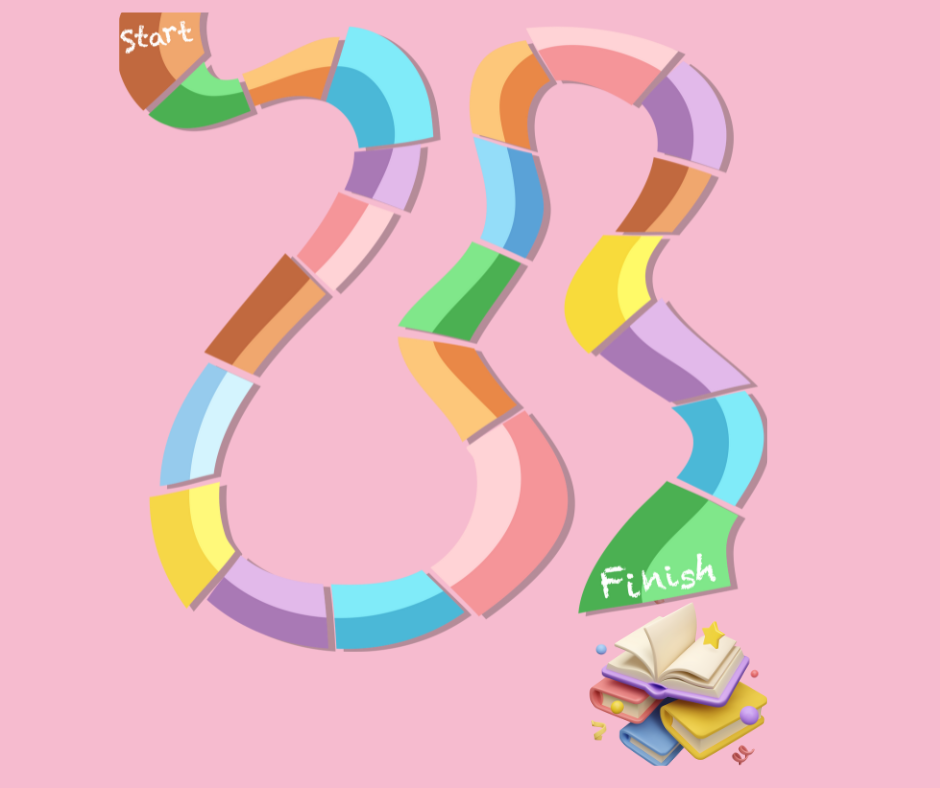Getting the Words Right: 35+ Commonly (Accidentally) Misused Homophones

Homophones (words that sound the same but are spelled differently and mean different things) can cause chaos because chances are you know what version to use, but for some reason the brain uses the wrong one. Even worse, homophones are often missed when you’re proofreading because you read what you meant, not what you wrote.
Most AI editors today will pick up on the wrong use of the word, but it doesn’t hurt to brush up on commonly misused homophones.
Accept/Except
- Accept: Verb meaning to receive or agree to. Example: “I accept your invitation to dinner.”
- Except: Preposition meaning excluding or leaving out. Example: “Everyone is coming to the party except for John.”
Advise/Advice
- Advise: Verb meaning to offer suggestions or guidance. Example: “I advise you to study harder for the exam.”
- Advice: Noun meaning suggestions or guidance offered. Example: “I need some advice on what to wear to the interview.”
Affect/Effect
- Affect: Verb meaning to influence or change. Example: “The new policy will affect our company.”
- Effect: Noun meaning the result or consequence of an action. Example: “The effect of the new policy is yet to be seen.”
Aisle/Isle/I’ll
- Aisle (noun) – a passageway between rows of seats or shelves; Example: I walked down the aisle of the airplane.
- Isle (noun) – an island; Example: Hawaii is an isle.
- I’ll (contraction of “I will”). Example: I’ll meet you at the coffee shop.
Bear/Bare
- Bear: Noun meaning a large mammal. Verb meaning to carry or support. Example: “The bear was spotted in the woods.”
- Bare: Adjective meaning uncovered or naked. Example: “The trees were bare in the winter.”
Bored/Board
- Bored (adjective) – feeling uninterested or tired; Example: I’m so bored right now.
- Board (noun) – a flat piece of wood or a group of people who oversee an organization. Example: He serves on the board of directors.
Break/Brake
- Break: Verb meaning to separate into pieces. Noun meaning a pause or interruption. Example: “I need to take a break from work.”
- Brake: Noun meaning a device used to slow or stop a vehicle. Example: “I applied the brakes to avoid hitting the car in front of me.”
Buy/By
- Buy: Verb meaning to purchase something. Example: “I need to buy some groceries at the store.”
- By: Preposition indicating proximity or proximity in time. Example: “I walked by the store on my way home.”
- Bye: Noun meaning farewell. In sports, it means to go to next round without playing. Example, “Bye, see you later.” “The team has a bye week.”
Capital/Capitol
- Capital: Noun meaning the city or town that is the seat of government. Adjective meaning of or relating to wealth or assets. Example: “Washington, D.C. is the capital of the United States.”
- Capitol: Noun meaning the building in which a state or national legislative body meets. Example: “The protesters marched to the state capitol.”
Complement/Compliment
- Complement: Noun meaning something that completes or enhances something else. Verb meaning to complete or enhance. Example: “The red wine complements the steak.”
- Compliment: Noun meaning an expression of praise or admiration. Verb meaning to praise or admire. Example: “She complimented me on my new outfit.”
Coarse/Course
- Coarse (adjective) – rough or vulgar; Example: The sandpaper is coarse.
- Course (noun) – a direction or path, or a series of lessons. Example: I’m taking a photography course.
Council/Counsel
- Council (noun) – a group of people who meet to discuss and make decisions; Example: The city council is meeting tonight.
- Counsel (noun) – advice or guidance given by a person in authority. Example: He sought counsel from his lawyer.
Desert/Dessert
- Desert (noun) – a dry, sandy region; (verb) – to abandon or leave behind; Example: The Sahara is a desert. I never desert my friends.
- Dessert (noun) – a sweet dish served after a meal. Example: I love chocolate dessert.
Dyeing/Dying
- Dyeing (verb) – present participle of “dye” (to color something); Example: She is dyeing her hair.
- Dying (verb) – the present participle of “die” (to pass away or cease to exist). Example: He is dying of cancer.
Hear/Here
- Hear: Verb meaning to perceive sound. Example: “I can hear the birds singing outside.”
- Here: Adverb indicating location. Example: “Come over here and sit down.”
Hole/Whole
- Hole (noun) – an opening or empty space; Example: There’s a hole in the ground.
- Whole (adjective) – complete or entire. Example: I ate the whole pizza.
Idle/Idol
- Idle (adjective) – inactive or lazy; Example: He was idle all day.
- Idol (noun) – an object of worship or a person who is greatly admired. Example: She is a big fan of her pop idol.
Insure/Ensure
- Insure: Verb meaning to protect against loss or damage with insurance. Example: “I need to insure my new car before I can drive it off the lot.”
Ensure: Verb meaning to make certain or guarantee. Example: “We need to ensure that all of the guests have a place to sit at the wedding.”
Its/It’s
- Its: Possessive pronoun, used to show ownership by a non-human subject. Example: “The dog wagged its tail.” Note, that some writers have difficulty with this because possession usually is signified with an apostrophy, such as the dog’s tail. But in this case, its without the apostrophe shows ownership.
- It’s: Contraction of “it is” or “it has”. Example: “It’s raining outside.”
Knew/New
- Knew (verb) – past tense of “know”; Example: I knew the answer to the question.
- New (adjective) – recently made or discovered. Example: She bought a new car.
Lay/Lie
- “Lay” is a transitive verb, which means it requires an object. This means that “lay” is used when you are putting something down, especially in a horizontal position. For example: “I am going to lay the book on the table.”
- “Lie” is an intransitive verb, which means it does not require an object. This means that “lie” is used when you are reclining or being in a horizontal position. For example: “I am going to lie down on the couch for a while.”
The confusion often comes from the past tense of these verbs. The past tense of “lay” is “laid”, and the past tense of “lie” is “lay”. For example:
- “Yesterday, I laid the book on the table.” (past tense of “lay”)
- “Yesterday, I lay down on the couch for a while.” (past tense of “lie”)
So, to summarize: “lay” is used when you are putting something down and “lie” is used when you are reclining or being in a horizontal position.
Peace/Piece
- Peace (noun) – calm or freedom from conflict; Example: We need peace in the world.
- Piece (noun) – a part or portion of something. Example: I broke a piece of the vase.
Pique/Peak/Peek
- Pique: Noun meaning a feeling of irritation or resentment. Verb meaning to provoke or stimulate. Example: “The criticism from her boss piqued her interest in finding a new job.”
- Peak: Noun meaning the highest point or summit. Adjective meaning highest or maximum. Example: “We reached the peak of the mountain just as the sun began to rise.”
- Peek: Noun meaning a quick or secret look. Verb meaning to take a quick or secret look. Example: “I took a peek at the birthday presents hidden in the closet.”
Plane/Plain
- Plane (noun) – a flat surface or aircraft; (adjective) – flat or level; Example: The carpenter used a plane to smooth the wood.
- Plain (noun) – a flat, open area; (adjective) – simple or unadorned. Example: The prairie is a plain. She wore a plain dress.
Principal/Principle
- Principal: Noun meaning the head or leader of an organization. Adjective meaning most important or primary. Example: “The principal of the school is retiring at the end of the year.”
- Principle: Noun meaning a fundamental truth or concept. Example: “The principle of supply and demand affects the economy.”
Rode/Road
- Rode: Past tense of the verb “ride”. Example: “I rode my bike to the store.”
- Road: Noun meaning a paved surface for vehicles. Example: “The road was closed due to construction.”
Role/Roll
- Role (noun) – a part played by an actor or a function performed by a person or thing; Example: Her role in the play was the lead character.
- Roll (verb) – to move forward by turning over and over, or a type of bread; Example: The ball started to roll down the hill. She buttered her roll.
Their/They’re/There
- Their: Possessive pronoun, used to show ownership. Example: “Their car is parked outside.”
- They’re: Contraction of “they are”. Example: “They’re going to the movies tonight.”
- There: Adverb used to indicate location. Example: “The book is over there on the shelf.”
Then/Than
- Then: Adverb indicating time or sequence. Example: “We went to the park and then we had lunch.”
- Than: Conjunction used in comparisons. Example: “I am taller than my sister.”
To/Too/Two
- To: Preposition indicating direction or movement. Example: “I am going to the store.”
- Too: Adverb indicating excess or addition. Example: “I ate too much cake.”
- Two: The number 2. Example: “I have two cats.”
Then/Than
- Then: Adverb indicating time or sequence. Example: “We went to the park and then we had lunch.”
- Than: Conjunction used in comparisons. Example: “I am taller than my sister.”
Waste/Waist
- Waste (noun) – garbage or unused material; (verb) – to use carelessly or without purpose; Example: Don’t waste your time on that.
- Waist (noun) – the narrow part of the body between the hips and the ribs. Example: My waist is too big.
Weather/Whether
- Weather: Noun meaning the condition of the atmosphere at a particular time and place. Example: “The weather is nice today.”
- Whether: Conjunction used to introduce alternatives. Example: “I don’t know whether to take the bus or walk.”
Whose/Who’s
- Whose (pronoun) – used to ask about the owner of something; Example: Whose book is this?
- Who’s (contraction of “who is” or “who has”) – used to combine “who” with “is” or “has” in a sentence. Example: Who’s going to the party tonight?
Your/You’re
- Your: Possessive pronoun, used to show ownership. Example: “Is this your book?”
- You’re: Contraction of “you are”. Example: “You’re going to have a great time at the party.”
Here are a few more homophone to to watch for:
- Ad/Add
- Ant/Aunt
- Ball/Bawl
- Base/Bass
- Beat/Beet
- Berth/Birth
- Berry/Bury
- Billed/Build
- Cereal/Serial
- Cast/Caste
- Cash/Cache
- Cell/Sell
- Censor/Sensor
- Cite/Site/Sight
- Choral/Coral
- Current/Currant
- Descent/Dissent
- Die/Dye
- Doe/Dough
- Dual/Duel
- Fair/Fare
- Flower/Flour
- Fir/Fur
- Hall/Haul
- Hair/Hare
- Heal/Heel
- Heard/Herd
- Here/Here
- In/Inn
- Knead/Need
- Knew/New
- Knight/Night
- Knot/Not
- Lose/Loose
- Leak/Leek
- Led/Lead
- Mail/Male
- Maid/Made
- Meat/Meet
- Merry/Marry
- Moose/Mousse
- None/Nun
- Pair/Pear
- Pain/Pane
- Pray/Prey
- Real/Reel
- Scene/Seen
- Sent/Scent/Cent
- Sole/Soul
- Steal/Steel
- Stair/Stare
- Tail/Tale
- Tea/Tee
- Throne/Thrown
- Throw/Through
- Tide/Tied
- Waive/Wave
- Way/Weigh
- Wring/Ring
- See/Sea
I’m sure there are many more! Do you have any homophones that sneak in to your writing by accident?






Responses